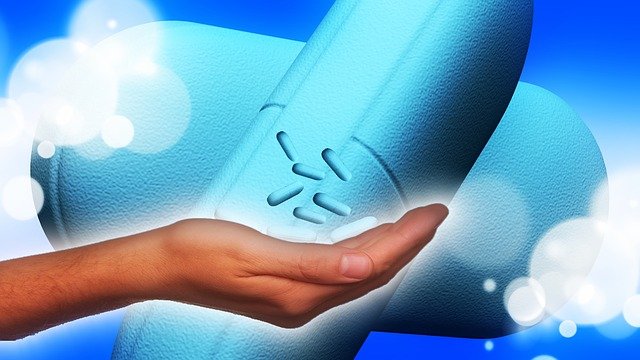
Credit: Pixabay
Niacin is an important B vitamin that may raise your HDL, (“good”), cholesterol. Find out if you should talk to your health care provider about taking niacin alone or with cholesterol medications.
Niacin, a B vitamin, has long been used to increase high-density lipoprotein (HDL) cholesterol — the “good” cholesterol that helps remove low-density lipoprotein (LDL), the “bad” cholesterol from your bloodstream.
But niacin isn’t for everyone. People who take niacin in addition to common cholesterol medications see very little additional benefit. And niacin can cause uncomfortable and sometimes dangerous side effects.
What is niacin?
Niacin (nicotinic acid) is a B vitamin that’s used by your body to turn food into energy. Niacin also helps keep your nervous system, digestive system and skin healthy. That’s why niacin is often a part of a daily multivitamin, though most people get enough niacin from the food they eat.
When it’s used as a treatment to increase your HDL cholesterol or correct a vitamin deficiency, niacin is sold in higher doses that are prescribed by your doctor. Prescription-strength niacin includes such drugs as Niacor and Niaspan.
Niacin is also available as an over-the-counter supplement. Supplements sold over-the-counter are not regulated like prescription medications. The ingredients, formulations and effects of over-the-counter niacin can vary widely.
Don’t take niacin without discussing it with your doctor first because niacin can cause serious side effects when taken in high doses.
What impact does niacin have on cholesterol?
Niacin can raise HDL cholesterol by more than 30 percent. There’s currently some debate about the exact role HDL plays in the body and in the development of heart disease. But HDL has generally been thought to pick up excess “bad” cholesterol in your blood and take it to your liver for disposal, which is why HDL is dubbed the “good” cholesterol.
Cholesterol levels are measured in milligrams per deciliter (mg/dL) or millimoles per liter (mmol/L):
- For men, HDL levels under 40 mg/dL (1.0 mmol/L) increase the risk of heart disease.
- For women, HDL levels under 50 mg/dL (1.3 mmol/L) increase the risk of heart disease.
Despite niacin’s ability to raise HDL, recent research suggests that niacin therapy isn’t linked to lower rates of death, heart attack or stroke.
What else can be done to increase HDL?
Lifestyle changes are helpful in boosting HDL:
- Stop smoking if you’re a smoker.
- Eat a healthy diet.
- Start an exercise program, with your doctor’s OK.
What side effects are associated with taking high doses of niacin?
High-dose niacin can cause stomach upset and make your skin flush or itch. More importantly, niacin can increase your risk of:
- High blood sugar levels or type 2 diabetes
- Infection
- Liver damage
- Stroke
- Bleeding
Who might consider taking niacin?
In the past, it was thought that HDL levels would increase even more if niacin was added to cholesterol medications called statins, such as atorvastatin (Lipitor) and simvastatin (Zocor). But recent studies indicate that niacin provides little additional benefit when compared with statins alone, and may increase the risks of serious side effects.
Most doctors no longer recommend niacin for first line cholesterol control — except for people who can’t tolerate statins. In those people, the benefits of niacin may outweigh the risk of potentially serious side effects.
Source: Mayo Clinic News Network
Sign up for the QuackTrack.org newsletter below!













